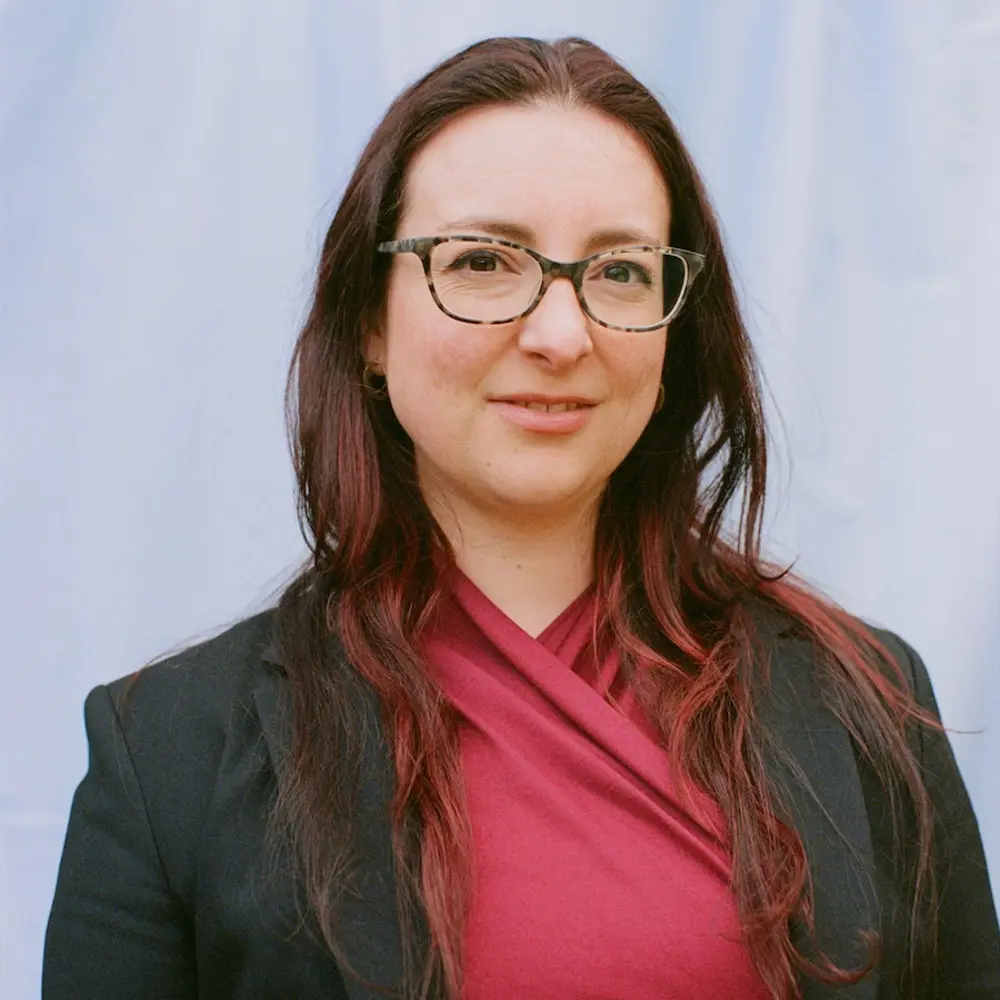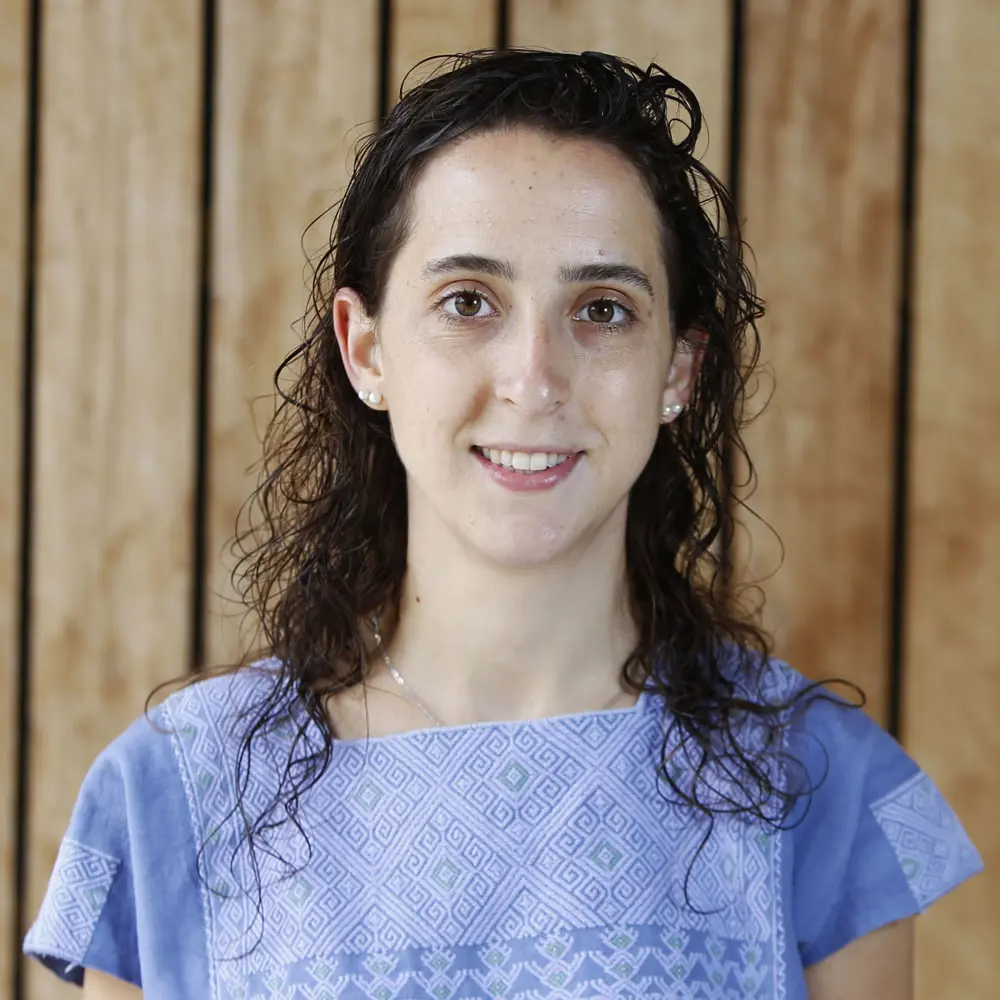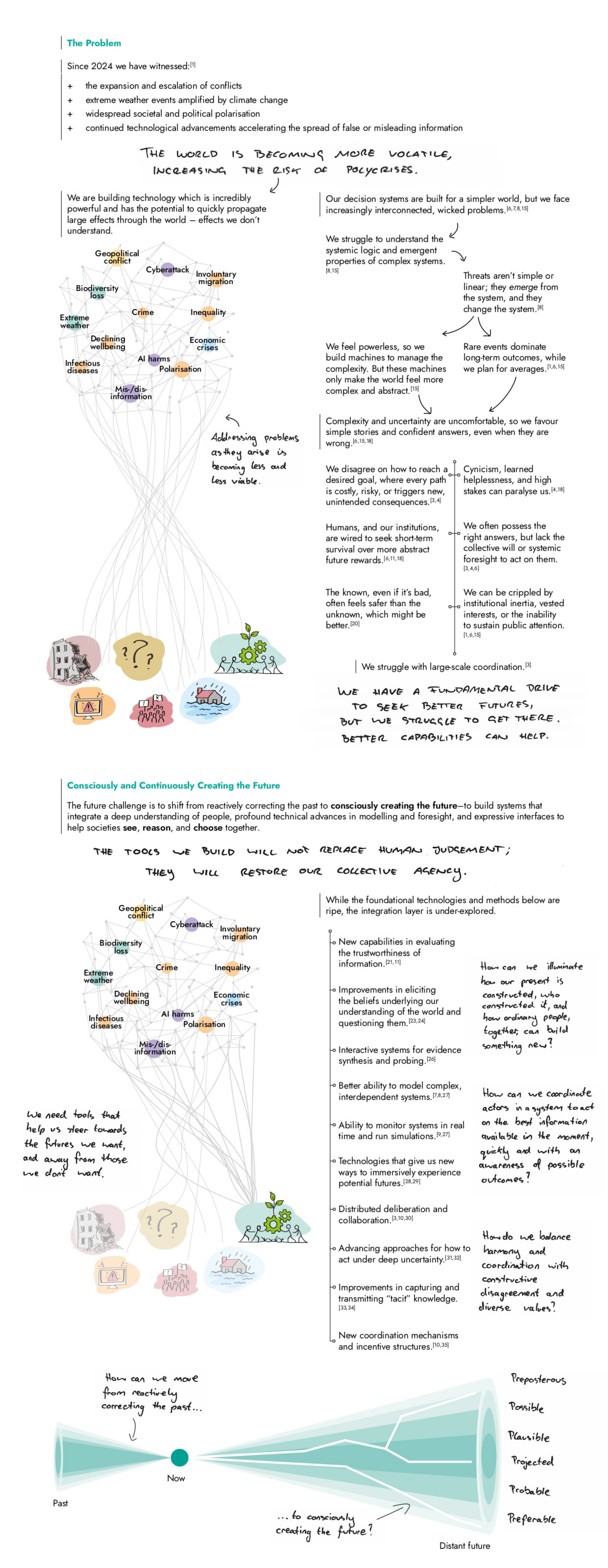What if we could create new technical capabilities that allow us to move from reactively correcting the past to consciously creating the future?
Defined by our Programme Directors (PDs), opportunity spaces are areas we believe are likely to yield breakthroughs.
In Collective Flourishing, we’re exploring if we can build new technical capabilities – a deliberative scaffolding – to augment our collective ability to envision, deliberate, and act on complex, large-scale challenges.
Beliefs
The core beliefs that underpin this opportunity space:
Navigating towards a better future requires clarity on direction and path → we need the capability to make systemic complexity legible so we can envision and deliberate over radically different futures.
Simply defining our intent for the future is not enough → we need a means of negotiating our fragmented values into shared, actionable plans for collective progress.
Our current cognitive, emotional, and social characteristics are not immutable constants → human capacity can and will change over time, and we need tools to figure out together how we navigate this change.
Capabilities that augment our vision, action, and capacity are powerful and can have unintended consequences → we must balance the pressing need for these tools with the immense responsibility they entail.
Give feedback on this opportunity space
Areas we are exploring whilst developing a funding programme in this space:
-
Platforms for organising, exploring, and questioning knowledge;
-
Evidence synthesis and world modelling;
-
Knowledge, belief, and value elicitation;
-
Scenario analysis, simulation, and wargaming;
-
Decision-making under deep uncertainty, bounded rationality, and negotiating complex trade-offs;
-
Methods for enhancing cognitive autonomy, reflective reasoning, and informed citizenship.
Help inform the development of the first programme thesis by providing feedback.
Meet the programme team
Our Programme Directors are supported by a core team that provides a blend of operational coordination and highly specialised technical expertise.

Nicole Wheeler
Programme Director
Nicole joined ARIA from the University of Birmingham, where she researched the potential of genomics and AI to detect and track new infectious diseases. She developed the UK's first software for screening synthetic DNA for potential biohazards. Nicole is also a technical expert for the AIxBio Global Forum and contributed to the world’s first International AI Safety Report.

Andrea Szydlo-Shein
Programme Specialist
Andrea holds a PhD in neuroscience and neurobiology, with postdoctoral work in immunology and industry experience in all three fields. She has expertise in small molecules and RNA therapeutics and has served in a range of roles, from lab research to scientific project management. Andrea supports ARIA as an operating partner from Pace.
Sign up for updates
Stay up-to-date on our opportunity spaces and programmes, be the first to know about our funding calls and get the latest news from ARIA.

